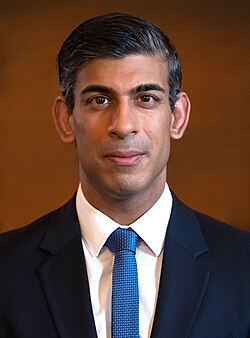Significance of these elections
When local elections were held in 2021 the Conservative Party made gains, mainly at the expense of the Labour Party. In the remaining years that proceeded the 2024 general election, the Conservative Party had several high-profile political scandals and crises and saw a decrease in their popularity in opinion polling. This was reflected in the poor results for the Conservative Party at both the 2022 and 2023 local elections. As a result of the 2023 local elections, Labour became the party with most members elected to local government for the first time since 2002. [6]
These were the second set of local elections held under the Elections Act 2022, a controversial voter identification law that requires [7] [8] voters to show photo ID when attending a polling station. This act also meant that the mayoral and police and crime commissioner elections would use a first-past-the-post voting system rather than the previously used supplementary vote system.
These local elections were the last set of routine elections before the general election. For this reason, the results were speculated by the media to influence both the date the general election would be scheduled for and the election strategies for each party.
Some Conservatives suggested framing the London Mayoral election as a de facto referendum on the ULEZ, [9] which could impact parties' attitudes towards environmental policy.
In late 2023, Labour suggested persistently high interest rates were going to cause a surge in mortgage costs affecting 630,000 homeowners who would re-mortgage between then and the local elections in May. They described the situation as a "financial time-bomb" and implied this would influence the electorate in the elections. [10]
Lord Hayward suggested that community activists and smaller parties may drain support away from the three main parties due to the directions of those parties and because the Liberal Democrats "are no longer the obvious choice for voters disillusioned with the two main parties". [11]
As the elections neared, there were suggestions that Prime Minister Rishi Sunak's leadership would be challenged if the results went poorly for his party, particularly if the Conservatives lost either the West Midlands or Tees Valley mayoralties. [12] Sunak quickly sought to insist to his own MPs that he would still be the Prime Minister after these elections, even if the results were poor for his party. [13] [14]
Deputy Prime Minister Oliver Dowden insisted that the 2024 local elections would be safe from cyberattacks whilst discussing Chinese state-linked hacking. [15]
Predictions
In March 2024, The Observer reported that the Conservative Party was expected to lose half its seats at this election, explaining that most of these seats were won at the peak of the "vaccine bounce". [16] Conservative Party chairman Richard Holden also cited the "vaccine bounce" as a reason to expect these elections to be "much tougher" for his party than the last time they were contested. [17]
Also in March 2024, Lewis Baston, a political analyst and author, posted that his analysis showed the Conservative Party was due to lose over 50% of their seats which are not changing boundaries. He found that of 613 seats being defended, they would lose 328 based on the swing seen in the 2023 local elections, but would gain eight elsewhere. [18] However, after more work, by 1 April 2024 he said he thought the Conservatives wouldn't lose half their seats because one third of the seats up for election were not last fought in the 2021 local elections, but were actually fought in tougher elections in 2019, 2022, and 2023. [19]
Analysts Michael Thrasher and Colin Rallings also said the Conservative Party was expected to lose half its seats at this election if a similar result to 2023 was repeated. They said the Conservatives would lose around 500 seats while Labour would gain around 300 and the Liberal Democrats and Green Party would both make gains. [20] [21]
Sky News' Sam Coates quoted Michael Thrasher's prediction that the Conservatives would lose around 500 seats while Labour would gain around 350, but added that they consider Gloucester Council likely to switch directly from Conservative to Liberal Democrat-controlled. [22]
YouGov conducted an MRP poll on 14–29 April 2024. They said their key findings were that they "expected Labour to make significant gains across the country, but that stories will emerge from specific local authorities which could leave every party with pleasing news". They predicted Labour to gain control of Hyndburn and Milton Keynes councils from no overall control, and to make significant gains in North East Lincolnshire, Peterborough, Thurrock, and Walsall. The Conservatives were expected to make gains in Reigate and Banstead. [23]




